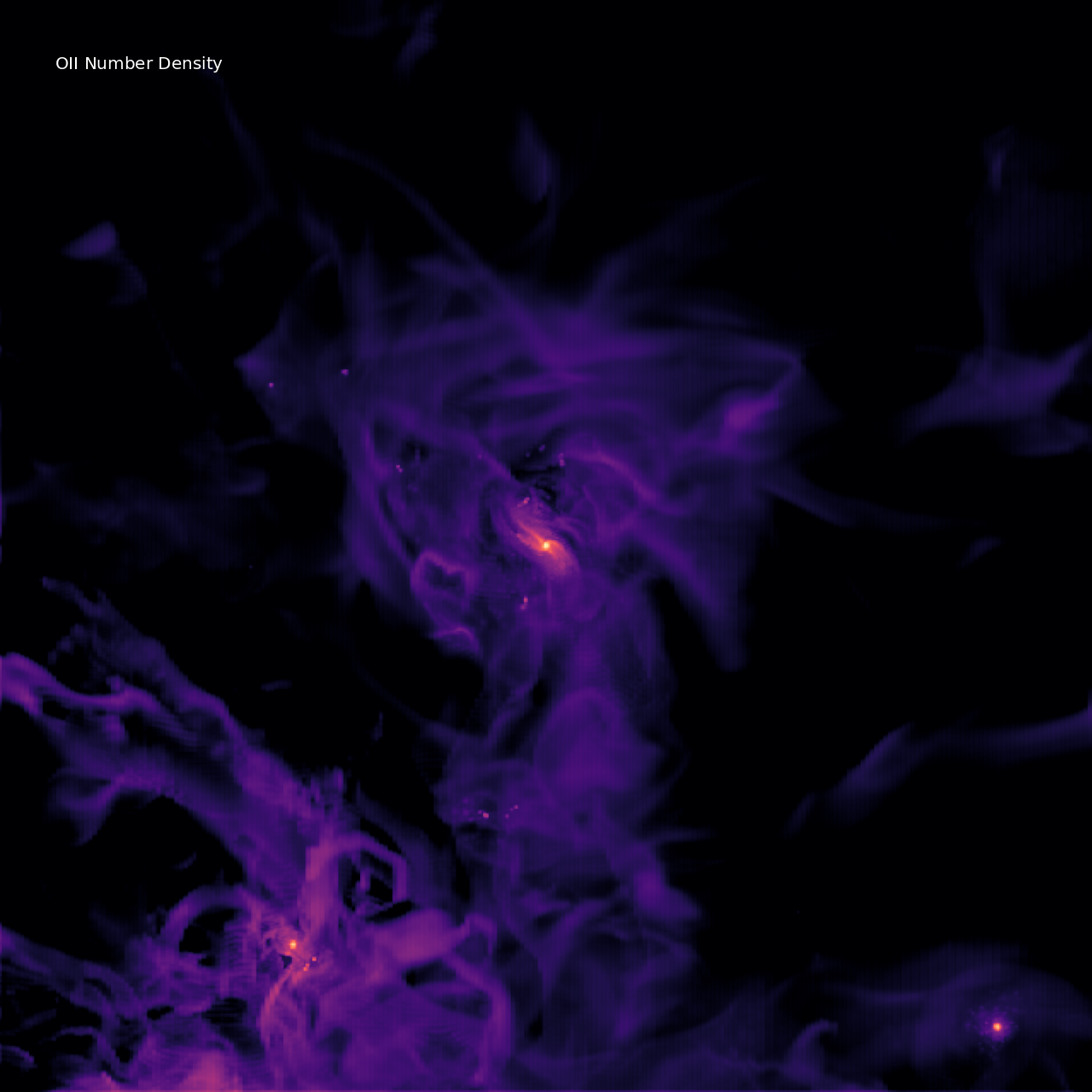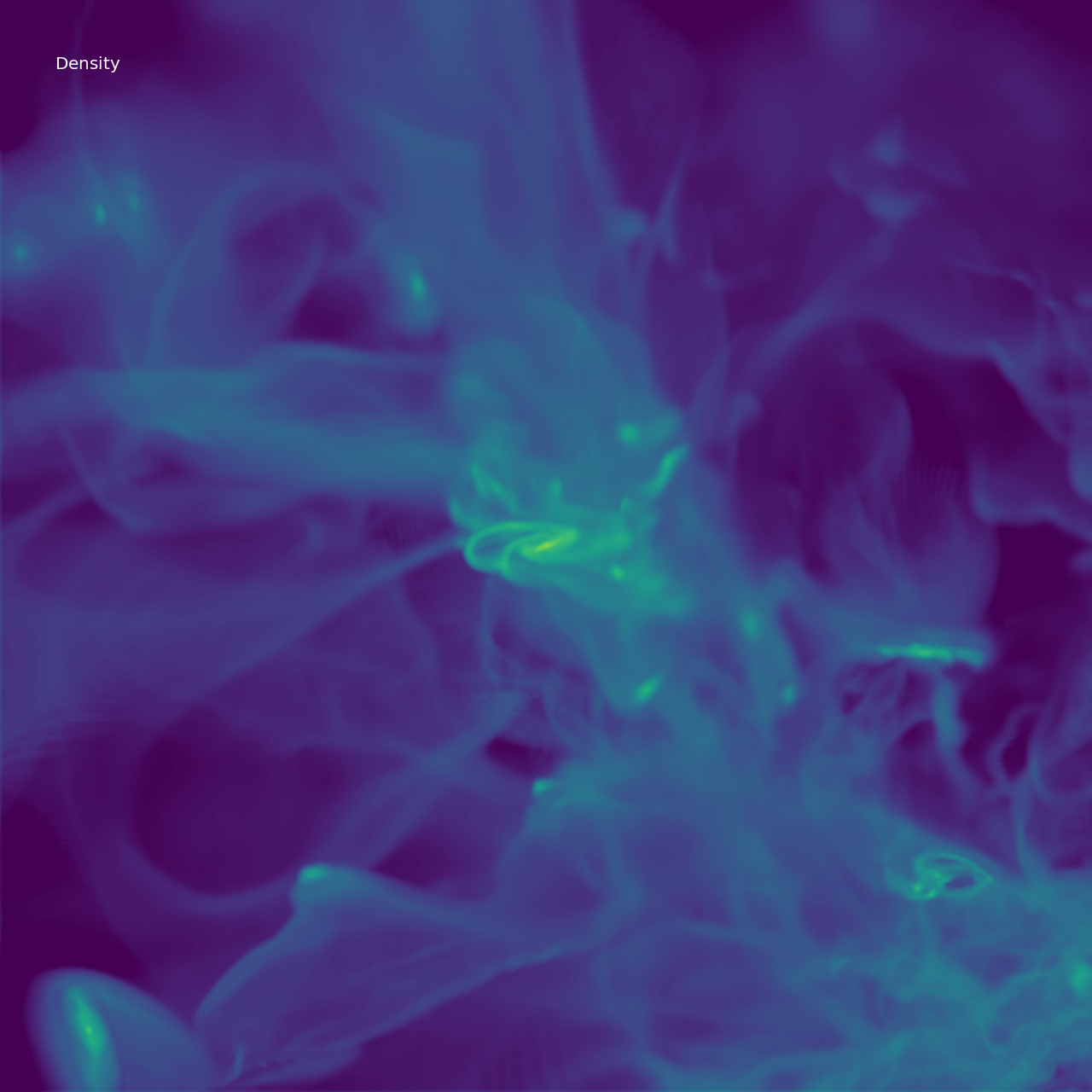MEGATRON
Shedding light on high-redshift galaxies
Corentin Cadiou — RUM 2024
Postdoc @ Lund University



Cosmic breakfast, 2nd breakfast and elevenses challenges

Harikane+24

FOOD, Wilkins+24

Cullen+24

Cameron+24
For a better intro
see Zack's presentation
Cosmic breakfast, 2nd breakfast and elevenses challenges
What kinematics do emission lines track?
What's the Ly-\(\alpha\) escape fraction?
How to infer SFR history when spectra dominated by emission lines?
What's the structure of cold inflows?
Outflow rates?
[…]

Harikane+24

Cullen+24

Cameron+24

Me
Tracer particles
High-cadence sampling
Puns

Martin Rey
Pop II modeling
Cooling length refinment
ICs generation

Harley Katz
RAMSES-RTZ
Pop III modeling
Calibrations
Model [i]
- Based on RAMSES-RT (Rosdahl+13)
- Out-of-equilibrium chemistry (Katz 23)
Primordial species: \(\text{H~{\small I}-{\small II}}\), \(\text{He~{\small I}-{\small III}}\), \(e^{-}\)
Metal ions: \(\text{C~{\small I}-{\small VI}}\), \(\text{N~{\small I}-{\small VII}}\), \(\text{O~{\small I}-{\small VIII}}\), \(\text{Ne~{\small I}-{\small X}}\), \(\text{Mg~{\small I}-{\small X}}\), \(\text{Si~{\small I}-{\small XI}}\), \(\text{S~{\small I}-{\small XI}}\) & \(\text{Fe~{\small I}-{\small XI}} \)
Molecules: \(\text{H}_2\) & \(\text{CO}\) - Dust model (Rémy-Ruyer+14)
Assuming dust-to-gass ratio - Heating & Cooling
photoheating, photoelectric heating, excitation/dissociation heating, primordial, dust recombination, dust-gas collisions, metal lines- \(\text{C~{\small I}}\), \(\text{C~{\small II}}\), \(\text{N~{\small II}}\), \(\text{O~{\small I}}\), \(\text{O~{\small III}}\), \(\text{Ne~{\small II}}\), \(\text{Si~{\small I}}\), \(\text{Si~{\small II}}\), \(\text{S~{\small I}}\), \(\text{Fe~{\small I}}\), \(\text{Fe~{\small II}}\) @ \(T<10^4\,\mathrm{K}\)
- CLOUDY tables @ \(T>10^4\,\mathrm{K}\)









\(\text{O\small{II}}\)
\(\text{O\small{I}}\)
\(\text{N\small{I}}\)
\(\text{Mg\small{II}}\)
\(\text{Ne\small{II}}\)
\(\text{CO}\)
\(\rho\)
\(v_r\)
\(\text{O\small{III}}\)
Model [ii]
- Turbulence-based star formation (Padoan & Nordlund 11, Agertz+21)
\(\dot{\rho_\star} = \varepsilon_\star\rho/t_\mathrm{ff}\)- if \(Z<10^{-6}Z_\odot\) ⇒ Pop. III
- if \(Z\geq10^{-6}Z_\odot\) ⇒ Pop. I & II, Kroupa
- \(M_\star = 500\,\mathrm{M}_\odot\)
\(M_{\star,\rm III} \sim 100\,\mathrm{M}_\odot\) - Feedback (Agertz+21; Rey+23)
core-collapse SN, type Ia, winds + HN (Nomoto+06). - Yields (Limongi & Chieffi 18)
AGB winds (Ritter+18)

Model [iii]
- MW analogue @ \(z=0\)
- Genetically engineered to form earlier
ICs generated withgenetIC - 2 main runs
- constant physical \(\Delta x_\mathrm{min} \approx 20-40\,\mathrm{pc}\)
-
constant comoving \(\Delta x_\mathrm{min}(z=2) = 20\,\mathrm{pc}\)
\(\Delta x_\mathrm{min}(z=5)=10\,\mathrm{pc}\)
\(\Delta x_\mathrm{min}(z=14)=4\,\mathrm{pc}\)

fiducial:
JWST is sad


early-forming:
JWST is happy
\(z=6\)

Stellar mass vs. Halo mass
CP not too bad compared to Vintergatan (Rey+23)
CC underregulates
Constant comoving
Constant physical


Varying IMF to the rescue?
Same model, but high-\(z\) dwarf \(M_\mathrm{dm}=10^{9}\,\mathrm{M}_\odot\) at \(z=6\)


Pop. III star formation
Pop. III star formation
Pop. II
Pop. III


Cooling length refinment
Refining where
\( \Delta x > 2 \sqrt{\dfrac{P_\mathrm{th}}{\rho}}\times \dfrac{1}{\Lambda_\mathrm{net}},\)
(Rey+23)
- up to \(80\,\mathrm{pc}\)
- turned on at key moments
\(\Delta x = 80\,\mathrm{pc}\)
Before
After


Cooling length refinment
Refining where
\( \Delta x > 2 \sqrt{\dfrac{P_\mathrm{th}}{\rho}}\times \dfrac{1}{\Lambda_\mathrm{net}},\)
(Rey+23)
- up to \(80\,\mathrm{pc}\)
- turned on at key moments
\(z=5.8\)
\(z=5.8(+2\,\mathrm{Myr})\)
\(20\,\mathrm{kpc}\)




Cooling length refinment


How much does it cost?
\(\times 3\)
\(\times 70\)!

Conclusions
It works and stay tuned for results?

